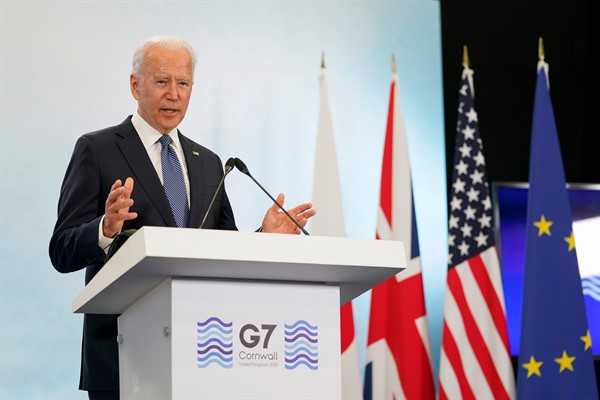When U.S. President Joe Biden participates in his first summit between the United States and the European Union tomorrow in Brussels, he should keep the focus on the big picture. While easing bilateral irritants would improve the tone of relations in the short term, the real test will be whether the U.S. and the EU can forge a common agenda of trans-Atlantic economic statecraft for the two key global challenges they face: China’s state capitalism and the existential threat of climate change.
Failure to do so would not only call into the question the strength of the trans-Atlantic relationship. It would also fuel populist opposition to one of Biden’s most fundamental—and persuasive—convictions: that the United States can only promote its values and interests globally by working closely with allies and other like-minded countries.
Perhaps understandably, given the lingering suspicions created by the Trump administration’s hostile approach to the EU, the areas of friction in the trans-Atlantic relationship are the most visible ones on the current agenda. These include the tit-for-tat World Trade Organization disputes involving subsidies to Boeing and Airbus, which date back to 2005; the plan by several EU member states to enact digital services taxes; the European Court of Justice’s decision invalidating the Privacy Shield agreement governing trans-Atlantic data flows; and the Trump-era U.S. tariffs on imports of steel and aluminum, including from allied and friendly countries like the members of the EU, justified under the Section 232 national security exception to prohibitions on such tariffs. Biden’s own “Buy American” executive order potentially figures on this list as well.

